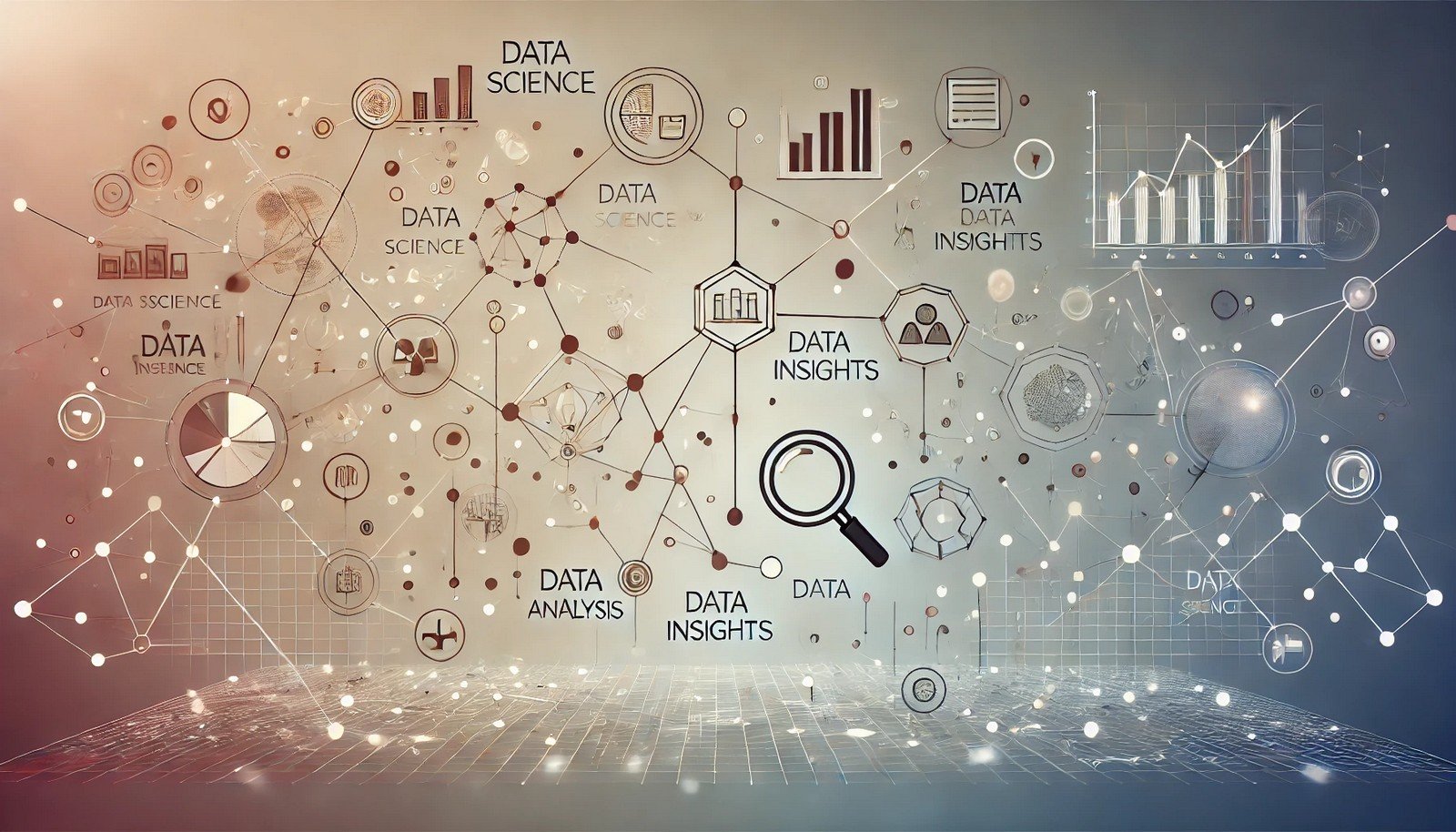Data Science

Quick Navigation:
- Data Science Definition
- Data Science Explained Easy
- Data Science Origin
- Data Science Etymology
- Data Science Usage Trends
- Data Science Usage
- Data Science Examples in Context
- Data Science FAQ
- Data Science Related Words
Data Science Definition
Data Science is an interdisciplinary field that involves extracting insights and knowledge from structured and unstructured data through scientific methods, processes, algorithms, and systems. It combines principles from statistics, computer science, mathematics, and domain expertise to analyze complex data and make predictions or inform decision-making. Key techniques in Data Science include machine learning, data mining, big data analytics, and visualization, which allow organizations to leverage large datasets for innovative solutions and strategic planning.
Data Science Explained Easy
Imagine you have a big box of colorful Lego blocks, and each color represents a different type of information. Data Science is like using different methods and tools to sort the blocks by color, size, or shape, so you can see patterns and understand how to build cool new structures. Data scientists do something similar with information, using special tools to find patterns, make predictions, and help people make decisions based on facts!
Data Science Origin
Data Science originated as a concept in the early 1960s with the emergence of computer science and statistics as separate fields. By the 1990s, as technology advanced and data grew more complex, the term "Data Science" was coined to describe the methods and tools used to process and analyze vast amounts of information. Today, it plays a crucial role across industries, driving insights from digital transformation and the exponential growth of data.
Data Science Etymology
The term "data" comes from Latin "datum," meaning “something given,” while "science" is derived from the Latin "scientia," meaning knowledge. Combined, "Data Science" represents the pursuit of knowledge from given data points through scientific methods.
Data Science Usage Trends
Data Science has seen exponential growth over the past two decades due to advancements in data storage, computational power, and machine learning technologies. Its usage spans various sectors like healthcare, finance, retail, and government, where large datasets are analyzed to improve operational efficiency and customer experiences. With the rise of AI and automation, Data Science continues to be a driving force in innovation, making it one of the most sought-after career paths in the technology industry.
Data Science Usage
- Formal/Technical Tagging: Predictive Analytics, Machine Learning, Data Mining, Statistical Analysis, Big Data, Artificial Intelligence, Visualization, Algorithms, Data Engineering, Data Analytics
- Typical Collocations: "data analysis," "data-driven insights," "predictive modeling," "data visualization," "data trends," "data-driven decision-making," "data mining techniques," "data manipulation," "algorithm development"
Data Science Examples in Context
"The retail company used Data Science to analyze customer purchasing trends and tailor personalized recommendations."
"In healthcare, Data Science has enabled early diagnosis by analyzing patient data to identify high-risk groups."
"Financial institutions rely on Data Science to detect fraudulent transactions by spotting unusual patterns in user behavior."
"The Data Science team developed a machine learning model to predict product demand and optimize inventory management."
Data Science FAQ
- What is Data Science used for?
It’s used to extract insights from data to solve problems, make predictions, and support decision-making in various industries. - How does Data Science differ from Data Analytics?
Data Science is a broader field that includes Data Analytics, which focuses specifically on examining datasets to find trends and insights. - What skills are needed to be a data scientist?
Skills include statistical analysis, programming (Python, R), machine learning, data visualization, and domain-specific knowledge. - Is Data Science part of AI?
Yes, Data Science often involves using AI techniques to process and analyze data, but it’s a distinct field focused on data itself. - What is the role of machine learning in Data Science?
Machine learning is a key component that enables Data Science to predict outcomes by learning from past data patterns. - Can Data Science work with unstructured data?
Yes, Data Science can process and analyze unstructured data like text, images, and video using specialized algorithms. - What industries use Data Science the most?
Major industries include healthcare, finance, retail, technology, and telecommunications. - How does Data Science impact everyday life?
It powers personalized recommendations, improves healthcare predictions, enhances fraud detection, and more. - What tools are commonly used in Data Science?
Tools like Python, R, SQL, TensorFlow, and Tableau are popular in the field. - Is Data Science only for big companies?
No, businesses of all sizes can benefit from Data Science to make data-driven decisions.
Data Science Related Words
- Categories/Topics: Artificial Intelligence, Machine Learning, Predictive Analytics, Data Mining, Statistics, Business Intelligence, Data Engineering, Big Data, Cloud Computing
- Word Families: data (data-driven, dataset), science (scientific, scientist), algorithm (algorithmic, algorithmically), analytics (analyze, analysis, analyst), machine (machine-learning)
Did you know?
Data Science played a crucial role in the COVID-19 pandemic, helping researchers analyze infection rates and predict the spread of the virus. By processing vast amounts of health data, data scientists contributed to identifying effective interventions, enabling real-time updates on infection trends, and guiding public health decisions around the world.
PicDictionary.com is an online dictionary in pictures. If you have questions or suggestions, please reach out to us on WhatsApp or Twitter.Authors | Arjun Vishnu | @ArjunAndVishnu

I am Vishnu. I like AI, Linux, Single Board Computers, and Cloud Computing. I create the web & video content, and I also write for popular websites.
My younger brother, Arjun handles image & video editing. Together, we run a YouTube Channel that's focused on reviewing gadgets and explaining technology.



Comments powered by CComment